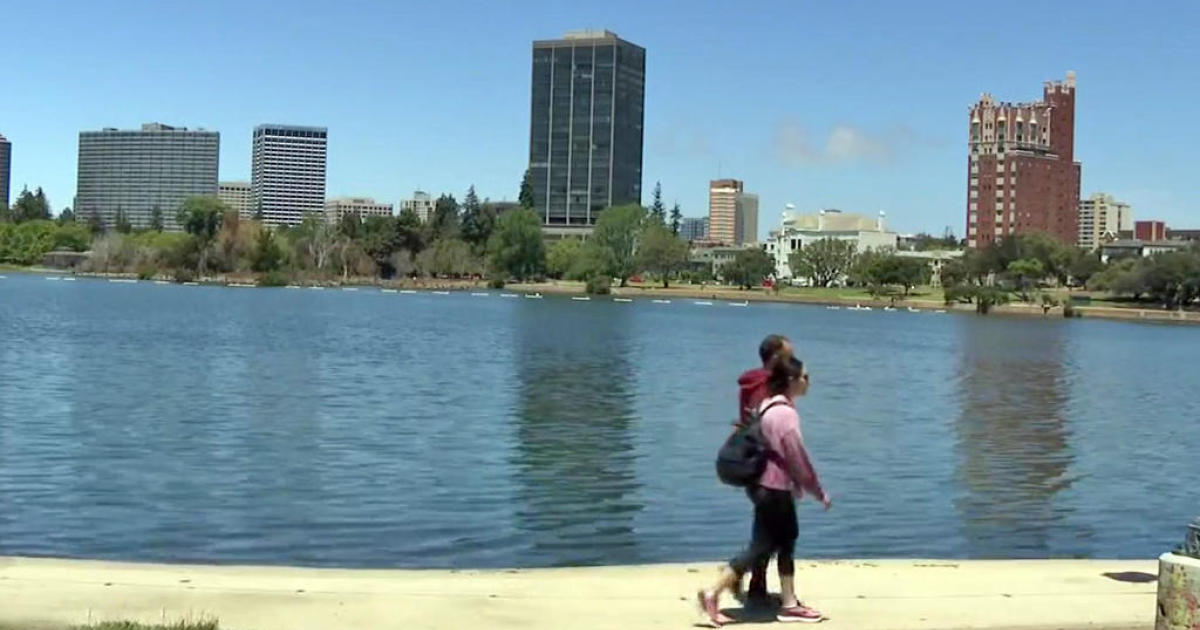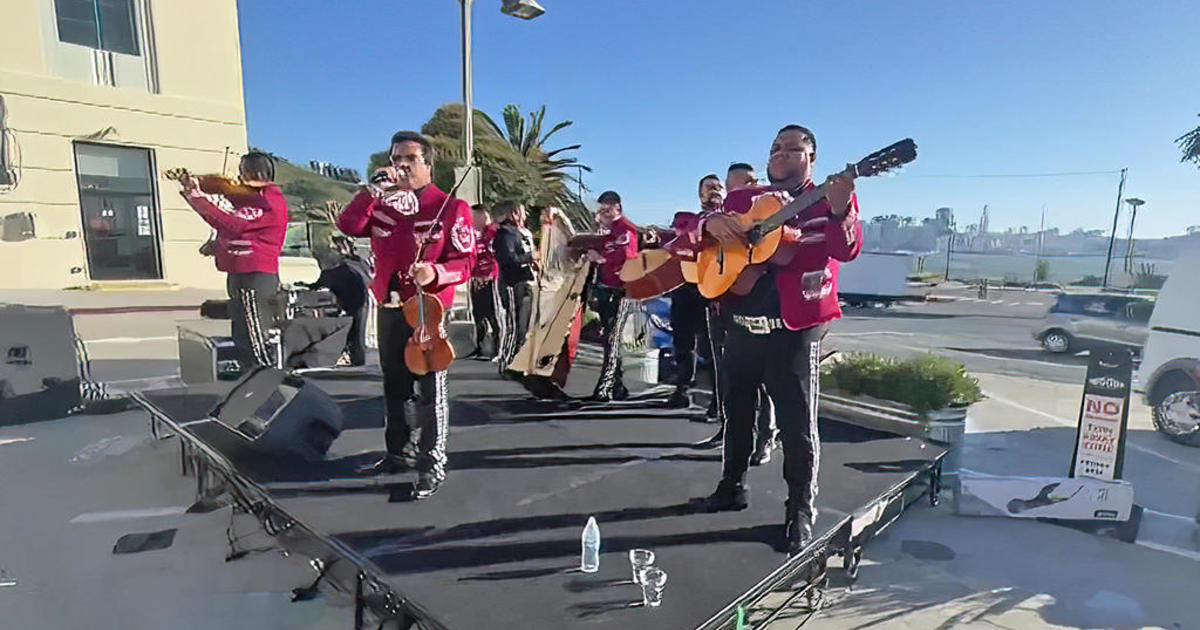Court refuses to block Oakland from razing makeshift dwellings at Wood Street encampment
OAKLAND -- The city of Oakland's attempt to clear an encampment on Wood Street to build low-income housing illustrates the array of considerations involved when closing a place where unsheltered people are living.
U.S. District Judge William Orrick on Wednesday refused to block city officials from disposing of several large pieces of property at the 1707 Wood St. encampment, including a 20- by 40-foot shipping container and several "tiny houses."
This was not Orrick's first encounter with the encampment or the people living there.
In 2022, he handled a separate lawsuit involving the closure of an encampment that once covered 40 acres of Caltrans land under the Nimitz Freeway in Oakland where between 200 and 300 people lived in vehicles, RVs, tents and other makeshift structures.
That site was closed in phases and a number of residents relocated to a two-acre rectilinear parcel at 1707 Wood St. owned by the city.
That site allegedly functioned as a small community with a common area used to organize donations and cook group meals several nights a week as well as "pop-up clinics, regular open mics, and other community town hall events."
There were more than 40 people living there on Dec. 22, 2022, when Oakland gave notice that it intended to evict all persons on Jan. 9 to clear the site for the development of low-income housing.
On Jan. 6, the judge enjoined Oakland -- on a "limited basis" -- from closing the 1707 Wood St. encampment. He gave a number of reasons for the injunction, among them severe weather conditions, the fact that flu and COVID-19 were going around, and the lack of available shelter options.
However, when he issued the stay, he telegraphed that it would be relatively brief.
Thereafter, he extended it several times based on conditions on the ground, but on Feb. 24 he ordered the stay dissolved.
Meanwhile, city workers were engaging with site residents and helping them relocate to shelter, including a "safe parking" area for RVs and a number of newly built residential "cabins."
On March 30, the city formally posted notices to vacate at the site and announced that closure would begin April 10 and residents should take their belongings.
Residents allegedly asked the city's permission to allow them to bring their large items to the shelter locations or alternatively to be provided storage, but were denied.
The city proposed to store personal property from the site only in accordance with its "Encampment Management Policy," which allocated one square yard of property storage per resident, an amount insufficient to store the large items.
On April 13, two of the plaintiffs moved for a temporary restraining order based on the potential for destruction of their large property. They argued that the judge should enjoin the closure unless and until the city "agrees to store bulky item possessions it seizes in the course of the eviction in a manner that comports with the requirements of the Fourth Amendment."
The property at issue, according to the plaintiffs, includes "the most valuable possessions of the Wood Street residents: their physical homes and the belongings inside."
The legal issue they asserted was different than the issues that had animated the early stages of the litigation. When the judge entered the initial injunction, he said that the "state created danger doctrine" was implicated by the city's plan to conduct the clearing during a time of weather and health emergency with nowhere else for residents to go.
The judge explained at that time that the U.S. Constitution does not generally require the state to protect people from harm caused by third persons, but there is an exception when the state "affirmatively places [a plaintiff] in danger by acting with deliberate indifference to a known or obvious danger."
At this stage of the process, however, the issue involved property and the state created danger doctrine was irrelevant. The plaintiffs' primary contention was that the Fourth Amendment protected them from unreasonable "seizures" of their property.
The plaintiffs relied on two decisions from the 9th Circuit Court of Appeals. The first held that unabandoned property of a homeless person left temporarily on a city sidewalk could not be destroyed. ("Were it otherwise," the court said, "the government could seize and destroy any illegally parked car or unlawfully unattended dog.") The second case involved the destruction of property that was too big to fit into a 60-gallon container -- like the property in this case -- things ranging in size from mattresses and couches to sheds or structures. The appeals court said that property could not be destroyed when an encampment was being cleared.
Orrick acknowledged the importance of the appellate decisions but saw their implications differently than the plaintiffs.
Orrick said the appellate cases both involved the "summary" destruction of the property, not a situation where there had been an extended opportunity to plan. He emphasized the fact that the plaintiffs had known for months that the day was coming when the 1707 Wood St. site was going to be closed and they had not made plans to move their property.
Because the city had an existing storage policy and had given time for the large property to be moved, as well as the fact that some of the property was "dangerous, hazardous, or otherwise unsafe," the judge found Oakland's approach would not be amount to an unreasonable seizure under the Fourth Amendment.
Finally, the judge emphasized that when a court considers granting a temporary restraining order, it should also consider whether an injunction would serve the public interest. Here he found that the importance of building the planned low-income housing marshaled against issuing an injunction.
The plaintiffs' lawyer did not immediately respond to a request for comment.



